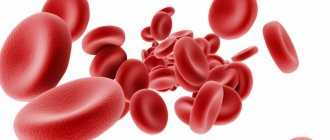Blood during urination in women is a symptom that appears due to injuries to the organs of the excretory system and various pathologies. It's called hematuria. It must be borne in mind that any change in urine color requires consultation with a doctor. Therefore, even if spotting appears only occasionally, do not neglect qualified medical care. This sign may indicate various diseases that occur in a latent form.
To get quality help, determine the causes of your illness and undergo treatment, contact a medical specialist in Belgorod. By following the recommendations of our doctors, you can improve your well-being and quality of life.
Why does blood appear when women urinate?
Most often, the symptom indicates the presence of fungal, viral and parasitic pathogens. Against the background of inflammation of the genitourinary system, blood clots occur during urination in women, as well as hematuria.
The color of urine may change due to menstrual flow. In addition, in the presence of hard deposits in the kidneys, hematuria often appears. As the stone passes through the organs of the excretory tract, they are traumatized, which is why hematuria is observed.
With severe physical exertion, you may experience bleeding. In this case, there is no discomfort; the phenomenon is short-term in nature. A reddish coloration of urine can occur when consuming certain dried fruits, beets, blackberries, and medications.
Hematuria may occur against the background of some gynecological diseases. It is also provoked by trauma, as well as recent cystoscopy. During diagnosis, a specialist may accidentally injure the mucous membrane of the urinary tract.
In some cases, pathologies are not accompanied by specific symptoms. For example, pyelonephritis can occur without burning, increased temperature and decreased overall tone of the body. And it is blood during urination that will be that alarming “bell”, when it appears, you need to consult a competent doctor as soon as possible.
Diagnostics
To undergo the examination, you must make an appointment with a urologist. During the consultation, the doctor will ask the patient about complaints and collect anamnestic information to identify risk factors for diseases. An initial examination sometimes reveals specific symptoms. To clarify the diagnosis, the urologist will need the results of instrumental and laboratory tests.
Necessary research
- Additional general urine analysis. The doctor will need to make sure that other samples also contain abnormal numbers of red blood cells. In addition, it is important to study the chemical composition of the liquid.
- Cystography is a visual examination of the inner lining of the bladder. The specialist inserts a thin tube equipped with a camera into the urethra. Using this method, stones, signs of damage or other changes can be detected.
- Ultrasound examination of the genitourinary system. Using ultrasound, you can study the structure of organs in real time. Imaging of the kidneys, bladder, and prostate is usually done.
- Additional visual examination methods, such as urography or computed tomography. Obtaining high-precision images gives the specialist the opportunity to detect even minor areas of hemorrhage.
The tests prescribed depend on the patient’s symptoms and individual medical history. Sometimes the doctor does other tests, such as a blood test or radionuclide kidney scan.
Pathologies manifested by blood during urination in women
- Cystitis. Often, inflammation of the bladder provokes blood at the end of urination. This is accompanied by weakness, fever and pain localized in the lower abdomen. Cystitis is the most common cause of hematuria in men. At the same time, the number of urges also increases, and urine is released in small portions.
- Urethritis. In rare cases, hematuria appears in women when a pathological process occurs in the urethra. It can manifest itself due to sexually transmitted diseases and an increase in the concentration of salts in urine. When they crystallize, sand is formed, which irritates and injures the mucous membrane. This causes the appearance of bloody discharge during urination.
- Urolithiasis disease. With this disease, blood is released when urinating in women. When solid formations pass through the urinary tract, they become traumatized. Against this background, hematuria occurs. It usually occurs after an attack of intestinal colic, accompanied by severe pain.
- Benign tumors. When polyps are traumatized, blood may appear in a woman’s urine when urinating.
- Glomerulonephritis. A pathology that occurs against the background of damage to the kidney structures. The color of the urine is pink-red, and there is no pain when going to the toilet. Glomerulonephritis occurs against the background of high blood pressure and edema.
- Oncology. Malignant formations of the bladder, kidneys and other organs of the system provoke hematuria. At the same time, discomfort when going to the restroom occurs quite rarely.
- Gynecological diseases. For example, hematuria can accompany endometriosis, vaginitis, vulvitis, cervical erosion, etc.
Urine formation
The excretory system is primarily necessary to filter the blood and remove metabolic products from the body.
The urine formed in the kidneys is the result of careful filtration of blood coming from the cardiovascular system: in the nephrons, harmful and ballast substances are released into the urine and the reverse transfer of useful substances (such as proteins and minerals) into the blood. As a result, a light yellow liquid with a specific chemical composition is formed. Substances contained in urine:
- various organic components, including glucose, uric acid, urea, ketone bodies, amino acids and creatinine;
- PMmineral substances in the form of ions: calcium, magnesium, chlorine and others;
- water is the main component of urine.
The organic components of urine are predominantly represented by nitrogenous compounds formed as a result of the breakdown of protein in the body. With an excess of nitrogenous compounds in the blood, we can sometimes talk about impaired renal function. The urine may also contain a moderate number of cells. Thus, normally no more than two red blood cells can be detected in urine (in the visible field).
Additional structures of the excretory system are involved in the removal of urine from the body. From the kidneys, fluid enters the ureters and is deposited in the bladder. During urination, fluid leaves the body through the urethra. The process of urination can also be affected by other organs that release their secretions through the urethra. These are the prostate gland, seminal vesicles, bulbourethral glands and testicles.
Diagnosis of pathologies manifested by blood during urination
The range of diagnostic procedures prescribed by a doctor depends on the specific clinical case. Therefore, initially he collects a detailed medical history and clarifies your complaints. After this you may be assigned:
- general urine analysis;
- urine analysis according to Nechiporenko and Zimnitsky;
- ultrasound examination of the pelvic organs and kidneys;
- X-ray examination of the urinary tract;
- computed tomography;
- cystoscopy;
- magnetic resonance imaging;
- general and biochemical blood tests;
- tests for sexually transmitted infections.
Treatment
Hematuria is a clinical sign and not a disease. Accordingly, the doctor needs to accurately determine the cause of the disorder and select treatment for the corresponding disease. The main task is to restore the functions of the excretory system and eliminate dangerous conditions such as bleeding, infection or the growth of a malignant tumor.
Features of treatment tactics
- Asymptomatic (isolated) hematuria usually does not require treatment.
- In case of infection, antibiotics are first prescribed. In case of chronic bacterial infection, it is recommended to test the sensitivity of microflora to antibiotics to select effective medications.
- Surgical intervention is most often prescribed for obstruction of the excretory tract by stones, tumors and anatomical defects of organs.
- In most cases, patients require a special diet.
Thus, hematuria is a common symptom of diseases of the excretory system. In rare cases, this symptom does not indicate the presence of pathology. During the consultation, the urologist will be able to explain why there is blood in the urine.
Causes of hematuria
Causes of hematuria include:
- urinary tract and kidney infections (cystitis, urethritis, pyelonephritis);
- bacterial and viral infections (streptococcal infections, hepatitis);
- urolithiasis (formation of stones in the kidneys, bladder);
- hypercalciuria;
- vesicoureteral reflux;
- benign prostatic hyperplasia (BPH);
- prostatitis;
- endometriosis;
- glomerulonephritis (damage to the glomeruli - the glomeruli of the kidneys);
- lupus nephritis;
- polycystic kidney disease;
- malignant neoplasms (kidney, bladder, prostate cancer);
- family history of kidney disease, BPH, urolithiasis;
- hereditary diseases: hemophilia, sickle cell anemia (hereditary hemoglobinopathy), Alport syndrome (familial glomerulonephritis);
- injuries of the kidneys, ureters, bladder;
- medications (cytostatic drugs, antibiotics, NSAIDs, anticoagulants);
- excessive physical activity (especially long-distance running);
- exposure to toxic substances in the workplace;
- radiation therapy for tumor diseases of the pelvic organs.
Inflammatory diseases
Inflammatory processes of the urinary system, for example, the kidneys, can lead to the appearance of blood in the urine. Usually the inflammatory process is characterized by microhematuria. In addition to erythrocytes, laboratory tests will certainly show the presence of leukocytes and bacteria; this fact only confirms the presence of an inflammatory process, which can be caused by the presence of E. coli, streptococci, staphylococci. Another symptom that you should also pay attention to is the presence of a long-lasting elevated body temperature of up to 38 degrees.
Possible complications
Complications of hematuria are associated both with the presence of blood itself and with the diseases that led to such a symptom.
Blood is a good nutrient medium for the proliferation of microorganisms, so the inflammatory process in the urinary tract with hematuria is very common.
The extreme degree of inflammation of the kidneys and the outcome of pyelonephritis is purulent-necrotic inflammation, called “kidney carbuncle.” It is accompanied by a severe general condition, high temperature and intoxication, the occurrence of urosepsis (bacterial blood infection with a primary focus in the kidney). In this case, secondary purulent foci can occur in any organs: heart, lungs, brain. This condition is life-threatening and requires urgent treatment. Sometimes, to save a person, you have to make a difficult decision to remove an organ.
Renal failure is a condition when the functions of the kidneys in the exchange of water, electrolytes and nitrogenous substances are disrupted or ceased. In acute renal failure, urine production stops. This can be due to many reasons, including blockage of the ureters by stones, blood clots, or a tumor.
Chronic renal failure occurs in various forms of glomerulonephritis, pyelonephritis, tumors of the kidneys and urinary tract, complicated urolithiasis, vascular diseases (systemic vascular inflammation, diabetes mellitus). All these conditions at the initial stage can be manifested by the presence of blood impurities in the urine.
When organs do not provide complete metabolism and removal of toxins, intoxication of the body occurs with the products of nitrogen metabolism, the indicator of which is the level of creatinine and blood urea. This condition is accompanied by weakness, itching, toxic damage to the nervous system, gastrointestinal tract, pleurisy and damage to the heart and bones. To relieve symptoms of self-poisoning of the body with nitrogen metabolism products, the patient undergoes hemodialysis procedures - blood purification using an “artificial kidney” device and awaits a donor organ transplant.
Thus, blood in the urine may be the first sign of a threat to life and health. In such cases, it is important to contact specialists in a timely manner, make an accurate diagnosis and complete treatment. MedCenterService doctors see patients in 17 clinics in Moscow. Each of them is located near the metro, and you can make an appointment with a specialist at any convenient time.







